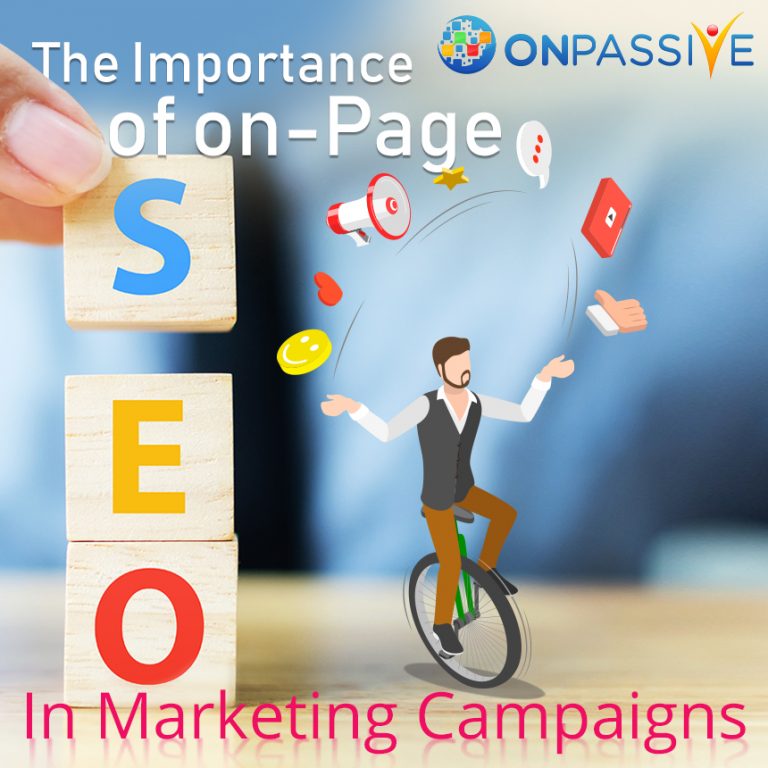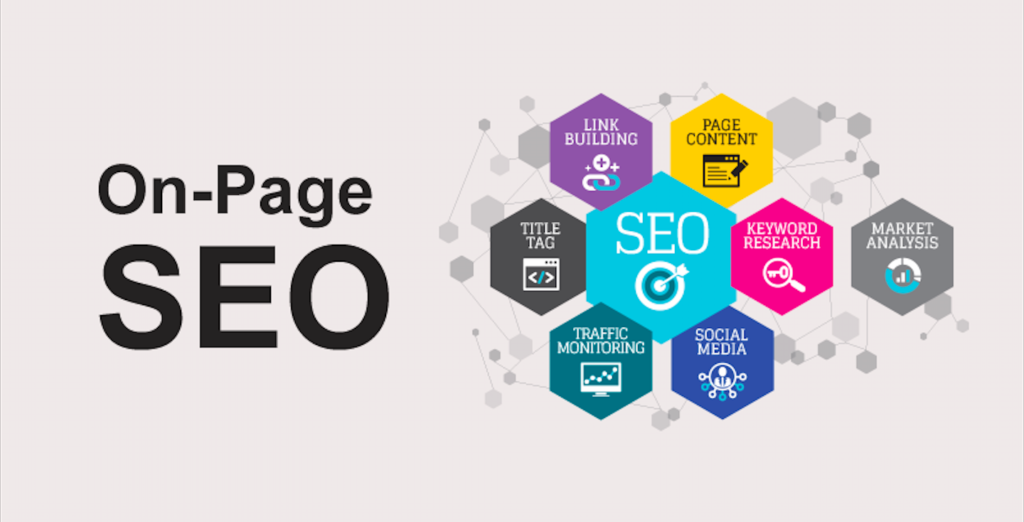

Online Marketing, SEO, On-Page SEO, Off-Page SEO
Hi there!
Now that you have understood the basic fundamentals of online marketing and understanding the importance of SEO.
Now, we will delve further into the different types of SEO; primarily On-page SEO and its importance in running marketing campaigns.
To recap, SEO stands for Search Engine Optimization which is a technique of ranking pages higher with changes in content, website structure and other factors which can be influenced to rank higher and earn relevant traffic to your business.
What is On-Page SEO?
It can simply be defined as an organic practice of optimizing the content and the source code of a webpage with the help of HTML code, to make sure the content can be optimized.
Unlike Off-page SEO, which relies more on external links and signals there are many different factors which influence the ranking of a website.
On-page SEO is primarily utilized for creating specific web pages to answer the questions of the searcher. This form of SEO allows you to group keywords according to topics, which can help you to create different web pages.
On-Page optimization goes a long way in helping your websites to rank better. By following some of the best on-page practices, one can organically rank their website by making a few tweaks to their online marketing strategy.
What are some factors to help On-Page ranking factors for SEO?
There are certain factors which can be utilized, which have a huge impact on the rank of the websites. Some of the fundamental on-page ranking factors, which influence SEO rankings are:
- Content on the page: It is important to make sure that the content that you write on your webpage is relevant and is written well. Good content is great for search engines as it helps to rank content higher. Content usually helps to fulfil the demand created by users everywhere. When the content on the page is linkable and is in demand, it will lead to higher rankings on the search results page.
- Good title tags: The next most important factor after content which influences on-page SEO are title tags.
- Clear URLs: Having a clear URL structure is great to help determine how the web page is relevant to the search engine. It is important for URLs to reflect the correct hierarchy of the content, which provides invaluable information to the search engines. The structure of the URL helps to add importance to the credibility of the page, as well as having a relevant metric to the pages.
What are some good practices for On-page SEO?
By optimizing the content pages on a website, it can help to make the web pages rank much better on any given topic, by being hyper-relevant for any products or services.
Some of the following areas to focus your on-page SEO strategy to improve your website’s rankings are:
- Title tags: By ensuring that the content for your title tag is relevant and attractive, you can ensure more clicks to your website.
- URL: You must strive to make sure that the name of the URLs matches the content of the webpage. For example, if you are writing about the best practices in SEO, then your URL must also reflect the content of the webpage.
- Content of a page: The content forms the meat of the webpage, the better the content on a website the higher the chance of Google ranking your website higher.
- Image alt text: These are also called alt tags and it helps to improve your SEO strategy. This is the text that appears on images, which Google scans through to rank your website higher.
Thus, this is the importance of on-page SEO in marketing campaigns. You can utilize these factors to improve your rankings to appear higher on Google search results.



Dirk Herfurth
4 years ago